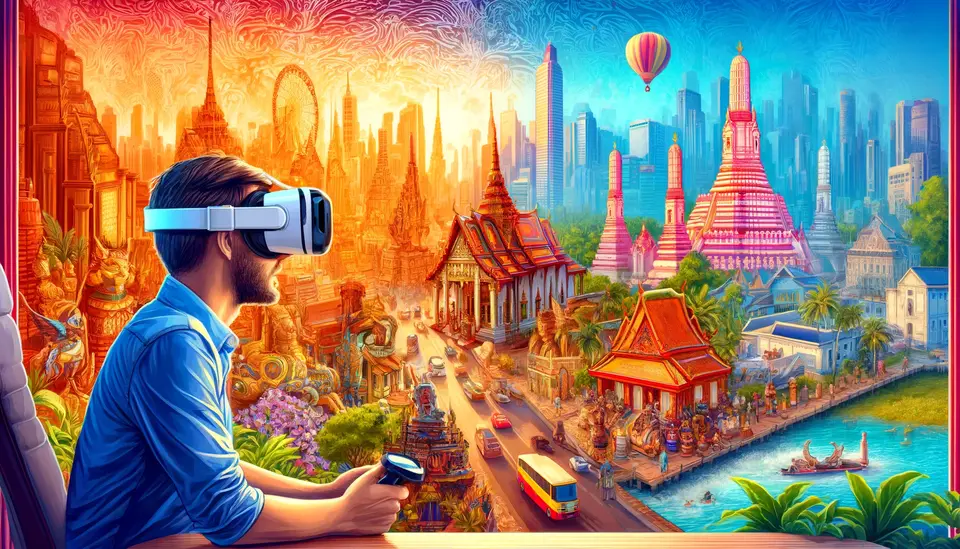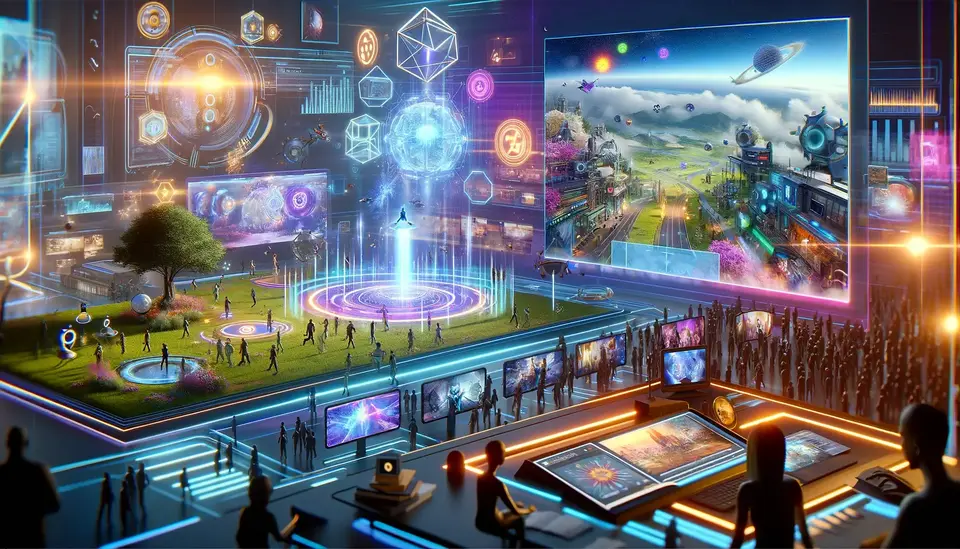The Role of Virtual and Augmented Reality Technology in the Creation of a Metaverse
Posted on April 7, 2023 3 minutes 553 words
Table of contents
The metaverse, a term derived from the combination of “meta-” (meaning beyond) and “universe,” is an emerging digital landscape that enables users to interact with each other and digital environments in immersive and engaging ways. As we stand on the cusp of a new digital revolution, virtual reality (VR) and augmented reality (AR) technologies play a critical role in shaping this interconnected, virtual world. In this blog post, we will explore how VR and AR technologies are paving the way for the metaverse and transforming various aspects of our lives.
Evolution of VR and AR Technologies
From the first VR headset in the 1960s to the release of AR-equipped smartphones, VR and AR technologies have come a long way. Advancements in computing power, display technologies, and sensor systems have enabled these technologies to become more affordable and accessible. As VR and AR continue to evolve, they become increasingly integral to the development of the metaverse.
Enabling Immersive Experiences in the Metaverse
At the heart of the metaverse’s appeal lies its ability to offer immersive experiences. With VR headsets like the Oculus Rift and AR glasses like Microsoft’s HoloLens, users can enter virtual worlds or overlay digital content onto the real world. Haptic feedback systems and 3D audio further enhance the sensation of presence, allowing users to truly “feel” the metaverse.
Platforms like VRChat and Rec Room showcase the potential of VR and AR to create engaging gaming experiences, while virtual events like Burning Man in VR demonstrate how these technologies can bring people together in entirely new ways.
Enhancing Social Interaction and Collaboration
VR and AR technologies have the power to revolutionize how we connect, communicate, and collaborate. Virtual workspaces like Spatial provide immersive environments for teams to work together, while social VR platforms like AltspaceVR facilitate interactions with friends and strangers alike.
Online education can also benefit from VR and AR technologies, with platforms like Engage providing students with interactive, immersive learning experiences that can be tailored to their needs.
The Future of Commerce in the Metaverse
The metaverse has the potential to transform commerce and retail experiences. VR and AR technologies can create virtual stores that allow users to try on clothes or preview furniture in their homes before making a purchase. Digital currencies, such as cryptocurrencies, are poised to play a significant role in the metaverse economy, facilitating transactions for virtual goods and services.
As the metaverse gains traction, traditional retail experiences may need to adapt and evolve in order to remain competitive and relevant.
Ethical and Societal Implications
The widespread adoption of VR and AR technologies in the metaverse raises ethical and societal concerns, such as privacy, addiction, and the digital divide. It is crucial for governments, corporations, and users to work together to address these issues and ensure a responsible and inclusive metaverse.
Conclusion
VR and AR technologies are the driving forces behind the creation of the metaverse, with the potential to transform gaming, social interaction, commerce, and more. As we continue to innovate and collaborate, the metaverse will undoubtedly become an increasingly important part of our digital lives. However, it is also essential to address the ethical and societal challenges that arise and to ensure that the metaverse is developed in a responsible and inclusive manner.








